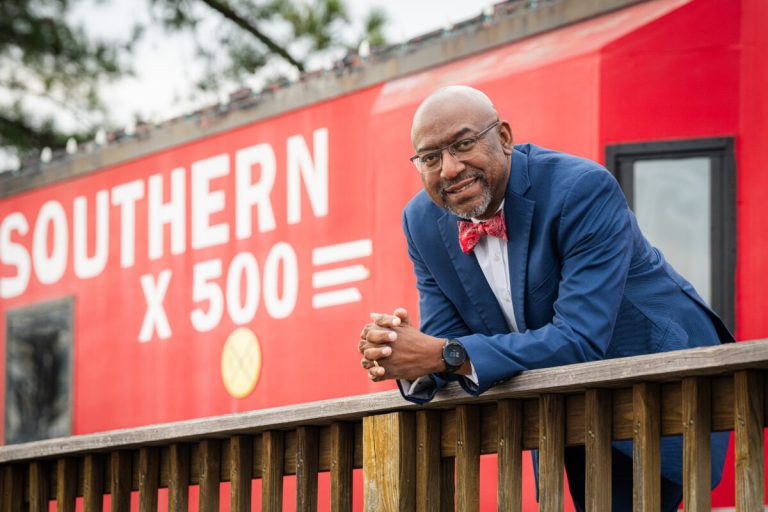It is a lifeline—United Way Community Crisis Fund has distributed $538,817 to 104 nonprofits
Reading time: 6 minutes
Sponsored

It has been a lifeline.
That is the consensus from groups we talked to who had been awarded COVID-19 relief grants from the United Way of Central Alabama Community Crisis Fund.
In four short months, the Crisis Fund has distributed over half a million dollars to 104 local nonprofit organizations in Jefferson, Shelby, Walker, Blount, and St. Clair counties.
To date, approximately 26,396 people have been assisted by the fund.
Assisting people and nonprofits in need

In March, United Way of Central Alabama President & CEO Drew Langloh announced the Community Crisis Fund’s formation to provide relief for people negatively impacted by COVID-19
Simply put, the fund was set up to raise donations to:
- Help feed people in need
- Provide some emergency assistance for people who need help paying bills for needs such as utilities and rent
- Support distressed nonprofit organizations
What kind of impact has the Crisis Fund had on the community?
We asked two local Crisis Fund grantees, Community Kitchens and Fellowship House,to describe the impact their grants have had on their work.
Community Kitchens

When you ask Randy Yarbrough to describe what the Community Kitchens does, he has a simple answer.
“We are an agency that offers at least one meal, 365 days a year. We have two locations, one on the Southside of Birmingham right next to the UAB campus at the parish house of St. Andrews Church. The other location is the parish house of Grace Church in Woodlawn. You don’t have to meet any qualifications. All you have to do is need a meal and want a meal, and we will feed you.”
The two dining rooms feed anywhere from 70 to 115 people a day. On Wednesdays, they offer a noon-time meal at Linn Park in cooperation with the Episcopal Diocese, which provides a little church service where people are fed afterward.
According to Yarbrough, homelessness and people needing meals are trending up on the Southside, expecting it to increase.

The United Way Crisis Fund to Community Kitchens helped the organization in two ways.
“One part of the United Way grant was through the food bank, which will allow us to feed our guests. The other is cash to support operations. Community Kitchen is an independent agency and not related to any church or government organization, with an all-volunteer board. We had to cancel two fundraisers already this year, and we only have four, so you can see how important money like this coming in from United Way—it’s extremely important to our operation. The United Way fund has been a huge blessing.” added Yarbrough.
Fellowship House

Fellowship House has been in the Birmingham community for nearly six decades. It provides addiction treatment services and a pathway to recovery with a place to live and work..
“We started as a halfway house years ago, and we’ve just kind of evolved every time we’ve had a need that didn’t seem to be met,” said Beth Bachelor, CEO of the Fellowship House. “Currently, we have residential and outpatient and apartment services in Jefferson County. We also have outpatient services in Walker County”
Fellowship House works collaboratively in the community to help people get back on their feet, addressing critical issues such as the opioid crisis.
“We’ve always worked with a population that has come to us really devastated, needing a lot of support. It’s been a privilege to be a part of their long-term journey and spend the first months or years as they recover.” —Bachelor
When the COVID-19 outbreak hit Birmingham and the nation in March, the lockdown and subsequent reopening hit participants at Fellowship House, particularly hard.
“A really good entry point for a lot of our folks has always been food service,” Bachelor described. “We had at least eight people lose their jobs immediately from the lockdown or did not know if they were going back (to work). What’s important about the transitional apartments is that it is a collaborative effort. These guys pay rent. The people going in there are paying a portion of the expenses so that we can have a clean and sober environment, and still provide treatment services. You can imagine losing your job is devastating, but on our end, too, that’s a big part of how we pay our bills.”
The Crisis Fund grant made sure that Fellowship House participants didn’t lose their apartments because of the coronavirus pandemic’s financial insecurity.
“The crisis fund has kept a lot of people from falling into a trap—from falling behind,” concluded Bachelor.
Community Crisis Fund Grants Still Available

These are just two groups out of 100+ that have received support.
According to the United Way, they will make awards until the Community Crisis Fund is depleted.
Do you know a group feeding people and providing emergency assistance? Or a nonprofit that needs help?
The United Way Crisis Fund is still taking grant applications until July 31st. Apply – HERE.

Even if an organization does not receive funding, the United Way has been sharing applications with other local foundations and funders.
And of course, please consider donating to the Community Crisis Fund. As you can see, it will make a significant impact on our community.
Bham Now will continue to follow and update the community on groups addressing the coronavirus pandemic. Be sure to subscribe to our newsletter to keep up with all the latest updates.
Sponsored by:




